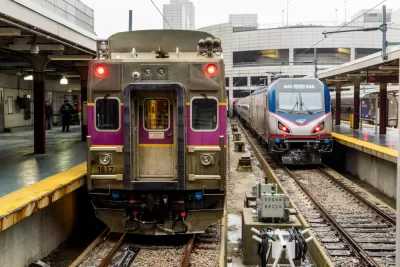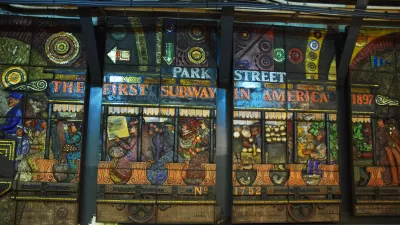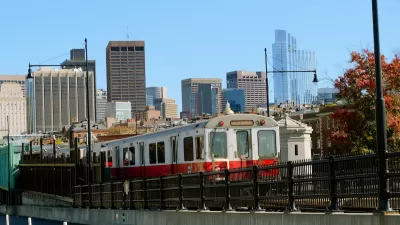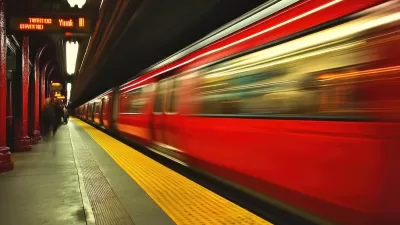After a similar bill was vetoed by Governor Charlie Baker in 2020, the Massachusetts senate has reintroduced an amendment that would mandate discounted transit fares.

“After another push from advocates, legislation which would require the MBTA to establish free or discounted fares for low-income transit riders is still in the mix with two weeks to go in the 2022 legislative session,” writes Sam Mintz for Streetsblog Massachusetts, but the legislation faces a few obstacles.
“The legislation has passed the legislature previously, only to be line-item vetoed by Gov. Charlie Baker. The bill was passed too late in the 2020 session to override the veto, State House News reported at the time. ” Now, “it would have to be included in the final version of the bill, which will be hastily put together by the House and Senate before the July 31 end of the legislative session.”
Pete Wilson, a senior advisor at Transportation for Massachusetts, said the program could be a crucial lifeline for low-income residents immediately. “It would be great if the T could actually start implementing this program to help people who really do need relief from things like high gas prices and record inflation,” Wilson said.
According to the article, “The Senate also passed an amendment which would define and legalize pedal-assist e-bikes, a top priority of bike advocates in Massachusetts, who say it would match the state definition with other states and the federal government and open up the door for wider adoption.” The legislation did not include language supporting rebates for-ebike purchasers, which supporters say would also boost widespread adoption.
FULL STORY: Mass. Senate Revives Low-Income Fare Legislation

Planetizen Federal Action Tracker
A weekly monitor of how Trump’s orders and actions are impacting planners and planning in America.

Maui's Vacation Rental Debate Turns Ugly
Verbal attacks, misinformation campaigns and fistfights plague a high-stakes debate to convert thousands of vacation rentals into long-term housing.

Restaurant Patios Were a Pandemic Win — Why Were They so Hard to Keep?
Social distancing requirements and changes in travel patterns prompted cities to pilot new uses for street and sidewalk space. Then it got complicated.

In California Battle of Housing vs. Environment, Housing Just Won
A new state law significantly limits the power of CEQA, an environmental review law that served as a powerful tool for blocking new development.

Boulder Eliminates Parking Minimums Citywide
Officials estimate the cost of building a single underground parking space at up to $100,000.

Orange County, Florida Adopts Largest US “Sprawl Repair” Code
The ‘Orange Code’ seeks to rectify decades of sprawl-inducing, car-oriented development.
Urban Design for Planners 1: Software Tools
This six-course series explores essential urban design concepts using open source software and equips planners with the tools they need to participate fully in the urban design process.
Planning for Universal Design
Learn the tools for implementing Universal Design in planning regulations.
Heyer Gruel & Associates PA
JM Goldson LLC
Custer County Colorado
City of Camden Redevelopment Agency
City of Astoria
Transportation Research & Education Center (TREC) at Portland State University
Jefferson Parish Government
Camden Redevelopment Agency
City of Claremont





























